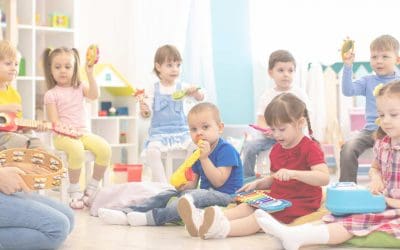Sleepaway Camp – How To Get Your Child Ready
It’s that time of year again as kids are excitedly waiting to board the bus to sleepaway camp. This was a yearly staple for my friends and me. From Christmas holidays onward I counted down the weeks till camp began, and once the snow melted the waiting game was escalated as I crossed off the days on my calendar. I cant wait to send my own kids to sleepaway camp, but they are certainly too young at this point. For those of you sending kids away in the coming weeks, here are some recommendations.
Is your child ready?
Consider your child’s personality. Is your child independent and relatively social? Does he or she go with the flow and adapt to new environments without too much difficulty? These are things you want to consider. And of course – does your child want to go away to sleepaway camp? Is your child eager and looking forward to some independence? Many camps have the option of sending for the weekend or a week at a time instead of committing to a whole month or two. Then your child can best decide if it is a good decision or if you should wait another year or more.
Which camp is best for your child?
This is very much a personal decision. Many parents chose a camp based on where the child’s friends are, or where they went as a child themselves. Expense, location, programs, types of cabins, availability of washrooms in the cabins, policies on communication with campers and many other issues may play a part in your decision. Speak to other parents and hear their experiences!
Consider your child’s personality. Is your child independent and relatively social? Does he or she go with the flow and adapt to new environments without too much difficulty?
Before you send your child
- Consider sending your child to camp for a brief trial period as above
- Start talking about camp months before the summer to get your child in the mindset. This will give your child plenty of opportunity to ask questions and learn what to expect
- Months before camp begins, start looking through the camp packing list and collecting the necessary items. You wont want to do this task in the few weeks before camp starts
- When possible take your child to camp visiting days or open houses to familiarize him or her with the space and people
- Discuss with your child what he or she can do in case of homesickness. Having a plan may relieve some fears and anxieties.
What to pack
Most camps provide a list of essential items to pack. Asking other parents will ensure you pack what is really needed. This is tricky and you’ll get better at this task over time. Each year my parents added and subtracted a few things, and my mother kept a ‘master list’ of what I really needed. Remember to label everything if you want it to come home with your child.
Things not to forget:
- Swimsuits
- Towels
- Warm clothing for evenings, including a jacket
- Toiletries – toothbrush, toothpaste, soap, shampoo, brush, feminine products as needed for girls
- Sunscreen and insect repellent
- Running shoes or hiking boots as required
- Water bottle
- Medicine – remember to take any medicine your child takes regularly, and pack extra in case it gets lost or wet. The councilor should keep this safe and dispense to ensure no mistakes.
- Bedding – sheets, pillow covers and blankets or sleeping bags
- Stationary to write letters home (you hope!)
- Camera – if you child is old enough he or she can take some pictures at camp. A disposable camera will work well even for young children
Now – enjoy! If your child is off at camp, you have one less child at home…more free time for you!
Dina is a wife, mother of 4, and adrenaline junky. She loves to share children’s health information from her professional and personal experience. More About Dr Dina.










